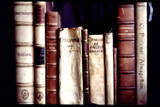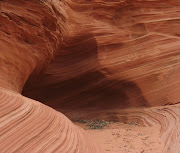The shelf, which was originally the size of Jamaica, is located on the western side of the Antarctic Peninsula, which thrusts up from the continent toward the southern tip of South America.
Originally covering about 13,000 sq km, the ice shelf lost 14 per cent of its mass last year alone, the statement quotes a scientist Angelika Humbert of Germany's Munster University as saying.
 Glaciers are gliding to their doom. As ice melts; sea levels rise, storms become more intense and eroded places become flooded are a few of the impending calamities facing the world as climate change becomes more real. Scientists are doing a hair raising freak out in a methodical toned down Spock/Data manner that is just not hyped up and dramatic enough to get the public and media's attention. Ice melting is happening faster than butter on a hot plate. When that happens, horror movies starring weather apocalypses will reign supreme on the nightly news with video of the living nightmare of all caught in the latest event. Antarctica is much larger than continental Europe with the islands of the UK thrown in as seasoning and its ice is breaking off, like giant crumbs, into the sea.
Glaciers are gliding to their doom. As ice melts; sea levels rise, storms become more intense and eroded places become flooded are a few of the impending calamities facing the world as climate change becomes more real. Scientists are doing a hair raising freak out in a methodical toned down Spock/Data manner that is just not hyped up and dramatic enough to get the public and media's attention. Ice melting is happening faster than butter on a hot plate. When that happens, horror movies starring weather apocalypses will reign supreme on the nightly news with video of the living nightmare of all caught in the latest event. Antarctica is much larger than continental Europe with the islands of the UK thrown in as seasoning and its ice is breaking off, like giant crumbs, into the sea."The rapid retreat of glaciers there demonstrates once again the profound effects ourplanet is already experiencing -- more rapidly than previously known -- as a
consequence of climate change," U.S. Interior Secretary Ken Salazar said in a statement.
"This continued and often significant glacier retreat is a wakeup call that change is happening ... and we need to be prepared," USGS glaciologist Jane Ferrigno, who led the Antarctica study, said in a statement.
"Antarctica is of special interest because it holds an estimated 91 percent of the Earth's glacier volume, and change anywhere in the ice sheet poses significant hazards to society," she said.
 For the most part anybody trumpeting that it will make it easier to get oil or other natural resources missed reading in full the 1959 Antarctic Treaty. Scientific research gets a big thumbs up with welcome signs and a ice post office for 4000 international scientists. Military maneuvers and mining is just a flat out NO as the ecosystems and area are meant to be preserved. Rookeries of penguins make their homes in Antarctica with whales making the trek each year trailing certain countries opportunists harpooning behind them, cough, Japan. Antarctica is broken up into claim areas with some nations reserving the right to name a claim later. That doesn't matter much when cubic meters of ice the size of larger Caribbean islands are falling into the ocean because all will feel the effects as more ice melts or destabilizes other pieces.
For the most part anybody trumpeting that it will make it easier to get oil or other natural resources missed reading in full the 1959 Antarctic Treaty. Scientific research gets a big thumbs up with welcome signs and a ice post office for 4000 international scientists. Military maneuvers and mining is just a flat out NO as the ecosystems and area are meant to be preserved. Rookeries of penguins make their homes in Antarctica with whales making the trek each year trailing certain countries opportunists harpooning behind them, cough, Japan. Antarctica is broken up into claim areas with some nations reserving the right to name a claim later. That doesn't matter much when cubic meters of ice the size of larger Caribbean islands are falling into the ocean because all will feel the effects as more ice melts or destabilizes other pieces.
Third time is the charm and maybe, the curse of an adventurer. A thrilling, yet terrible adventure story that lets you feel the killing cold conditions and the most terrible decisions are in the phenomenol and classic book, Endurance: Shackleton's Incredible Voyage by Alfred Lansing. It's a real icy barnburner of a read that won't let you abandon book.












No comments:
Post a Comment